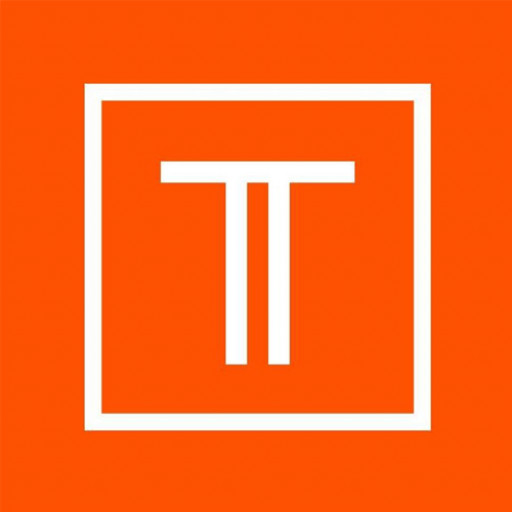Photos of university / #universityofgroningen
Artificial Intelligence is a rapidly evolving interdisciplinary field that combines principles from computer science, mathematics, cognitive sciences, and engineering to develop systems capable of performing tasks that typically require human intelligence. The MSc in Artificial Intelligence at the University of Groningen offers students a comprehensive and in-depth educational experience designed to prepare them for a successful career in academia, research, or industry. This program focuses on core topics such as machine learning, data mining, natural language processing, robotics, computer vision, and reasoning under uncertainty. Throughout the programme, students will gain strong programming skills, enhance their understanding of algorithms, and learn how to design and implement intelligent systems.
The curriculum blends theoretical foundations with practical applications, enabling students to develop innovative solutions to complex problems. Students will engage in advanced coursework covering topics like probabilistic models, deep learning, autonomous agents, and multi-agent systems. The program emphasizes collaborative projects, internships, and research opportunities that foster teamwork, creative problem-solving, and real-world experience. With a strong emphasis on ethical considerations and societal impact, the MSc in Artificial Intelligence aims to produce responsible AI practitioners who can contribute positively to technological advancements.
Students have the opportunity to learn from renowned faculty members who are active researchers in the field. The university’s excellent research facilities and close ties to industry partners provide an ideal environment for hands-on learning and professional development. Graduates will be well-equipped to pursue careers in AI development, data analysis, software engineering, or continue with doctoral studies. The MSc in Artificial Intelligence at the University of Groningen is designed for ambitious students with a passion for innovation and a desire to harness the power of AI to address some of the world’s most pressing challenges.
Detailed Course Facts
Application deadline Dutch students - May 01, 2015; EU/EEA students - June 01, 2015; non-EU/EEA students - April 15, 2015 Tuition fee- EUR 1951 Year (EEA)
- EUR 10400 Year (Non-EEA)
Duration full-time 36 months Languages Take an IELTS test
- English
Course Content
Programme scheduleCourses year 1- Autonomous Systems
- Calculus
- Cognitive Psychology, Logic
- General Linguistics
- Introduction to Computing Science
- Programming
- Architectures of Intelligence
- Biopsychology
- Knowledge and Agent Technology
- Language and Speech Technology
- Practicals in e.g. Autonomous Systems, Cognitive Science, Knowledge Technology
- Practicals in e.g. Language Technology, Speech Technology Practical
- Bachelor Project (10 EC)
- Minor Electives (15 EC)
- Neural Networks
- Neurophysics
- Philosophy of Cognitive Science
The Groningen science and engineering programmes stand out for their academic excellence. The work pace in the first year is generally high and the courses contents demanding. The first year curriculum concentrates on laying a sound basis for our engineering and natural science disciplines. This allows our students to chooise their specialisation tracks already in their second Bachelor's year.
Credits per year: 60 ECTS; most courses are 5 ECTS.
Study abroad
- Study abroad is optional
- Maximum of 30 EC
(Binding) study advice
- A minimum of 45 EC in the first 12 months ( binding )
- Get your propedeutic diploma in the first 24 months ( binding )
English Language Requirements
IELTS band : 6.5 TOEFL paper-based test score : 580 TOEFL iBT® test : 92
To study at this university, you have to speak English. We advice you to
take an IELTS test.Requirements
Specific requirements / More information- additional subject
This is merely an indication of required background knowledge. The admissions board determines whether the specific contents of this/these course(s) meet the admission requirements of the bachelor programme for which you applied.
- knowledge minimum
What if you do not meet the admissions requirements?
We offer a foundation year for students who do not meet the admissions requirements, in association with the Holland International Study Centre. The Foundation year will help you develop your academic skills and English language to the required standard, after which you can progress to the first year of your Bachelor's programme.
More information can be found at: http://www.hollandisc.com/(...)ence-and-engineering
- language test
Proof of English proficiency is required: TOEFL IBT score of 92, a TOEFL CBT score of 237, a TOEFL PBT score of 580, an IELTS score of 6.5, a CAE or CPE certificate.
MAKE SURE TO VISIT http://www.rug.nl/(...)issions/bsc/language for all the necessary information about required language tests.
- previous education
Secondary education equivalent to Dutch pre-university education is required.
This is merely an indication of the required general level of applicants' previous education.
FOR MORE INFORMATION please visit the 'BSc Application Procedure' pages at:http://www.rug.nl/(...)amme/admissions/bsc/
- other admission requirements
BEFORE YOU APPLY!
Make sure to visit 'BSc Application Procedure' at:http://www.rug.nl/(...)amme/admissions/bsc/for all the necessary information about the procedure and admission requirements.
Work Experience
No work experience is required.
Related Scholarships*
- Academic Excellence Scholarship
"The Academic Excellence Scholarship can provide up to a 50 % reduction in tuition per semester. These scholarships will be renewed if the student maintains superior academic performance during each semester of their 3-year Bachelor programme. The scholarship will be directly applied to the student’s tuition fees."
- Alumni Study Travel Fund
Scholarships for students who are already attending the University of Reading.
- Amsterdam Merit Scholarships
The University of Amsterdam aims to attract the world’s brightest students to its international classrooms. Outstanding students from outside the European Economic Area can apply for an Amsterdam Merit Scholarship.
* The scholarships shown on this page are suggestions first and foremost. They could be offered by other organisations than University of Groningen.
Funding
The university is committed to recognizing excellence in academic achievement through offering a number of scholarships for international students and researchers. Several scholarships are available for international students who are motivated to study Bachelor’s, Master’s and PhD programmes, as well as for exchanges, short courses and research stays at our university.
Besides scholarships awarded by the University of Groningen, a number of grants awarded by the Dutch government, the EU and (inter)national organizations, such as World Bank or the Ford Foundation, can be used for study or research at the University of Groningen as well.
Artificial Intelligence at the University of Groningen offers a comprehensive and interdisciplinary Master’s program designed to equip students with the theoretical knowledge and practical skills necessary to design, develop, and analyze intelligent systems. The program emphasizes the foundational principles of AI, including machine learning, data analysis, natural language processing, robotics, and computer vision. Students are trained to address complex problems across various domains, applying innovative AI techniques to real-world challenges. The curriculum combines rigorous coursework with research opportunities, encouraging students to engage with cutting-edge developments in AI research and industry applications.
The program is suitable for students with backgrounds in computer science, mathematics, engineering, or related fields who aspire to become experts in AI. It offers a blend of theoretical and applied learning, including programming assignments, projects, and collaborations with academic and industry partners. Students learn to develop algorithms, analyze large datasets, and create intelligent applications that can adapt and improve over time. The program also fosters critical thinking about ethical and societal implications of AI technologies, preparing graduates to contribute responsibly to technological advancements.
Throughout the program, students have access to state-of-the-art labs and resources at the University of Groningen, supporting hands-on experience with AI tools and platforms. They may participate in seminars, workshops, and guest lectures by prominent researchers and industry professionals. Graduates of this program are well-prepared for careers in research, development, and application of AI in sectors such as healthcare, finance, robotics, and information technology. Additionally, the program can serve as a stepping stone for those interested in pursuing PhD studies in artificial intelligence or related disciplines, fostering innovation and leadership in the rapidly evolving field of AI.








